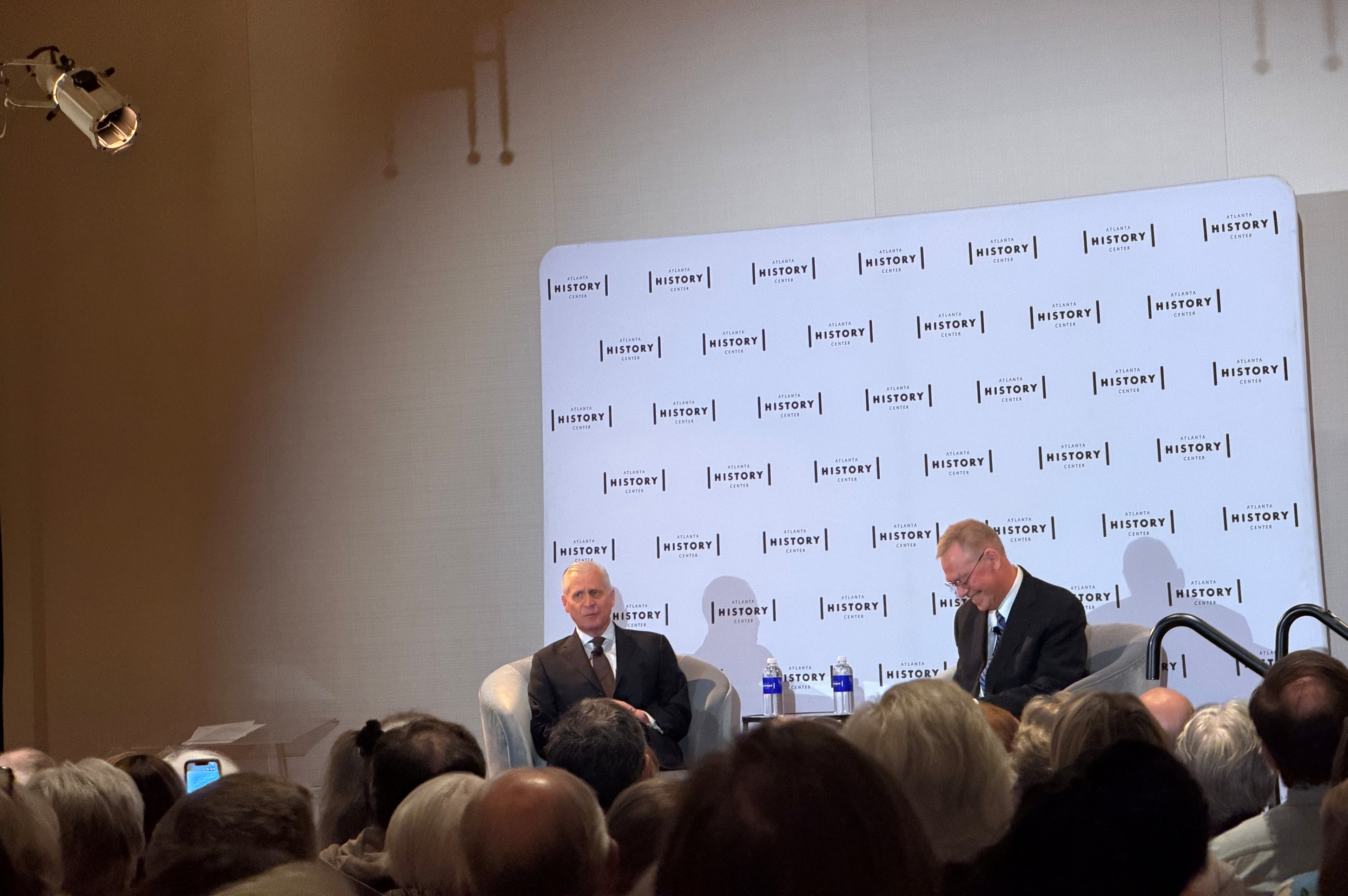Opinion: A walk in the park really is good for you

For 20 years, Atlanta has invested in parks to strengthen communities, improve quality of life and preserve our environment. Often overlooked in the reasons for investing in parks are the benefits to our mental well-being.
Recent reporting in The Atlanta Journal-Constitution and elsewhere has highlighted the mental health crisis facing our nation. Ensuring that all residents have access to parks and the outdoors is essential to any holistic approach to combating the anxiety and depression suffered by too many Americans.
The city of Atlanta’s Department of Parks and Recreation has completed its 10-year comprehensive master plan, Activate-ATL, prioritizing parks, greenspace and recreation programming. This roadmap, adopted by the City Council in December 2021, informs the future of our parks with intensive evaluation of the existing conditions, population growth and national trends.

Parks are out of reach for many of the 80 percent of Americans who live in urban areas. Currently, 100 million people, including 28 million children, do not have a park within a 10-minute walk of their home. Additionally, neighborhoods where residents were historically denied resources based on race and ethnicity have significantly less tree cover and fewer park acres today.
Over the past decade, the increase of time spent scrolling on social media, interacting via virtual meetings and going to school online has fueled indoor lifestyles isolated from each other and the outdoors. This impacts our mental health.

According to the 2022 State of Mental Health in America report, 50 million people reported experiencing mental illness. In Atlanta, an average of 16.6 percent of adults reported frequent mental health distress in 2019, before COVID-19 began. The loneliness crisis is magnifying. There is an urgent need for effective and widespread interventions, including in our neighborhoods.
Time spent outdoors is associated with lower cortisol levels — the hormone tied to stress. People living in areas with nature experience less anxiety and depression, increased feelings of tranquility and improved mood and better concentration.
Greenspace is associated with lower levels of loneliness. For children, teens and adults, regular doses of nature have been found to improve emotional resilience, test scores and cognitive health. Access to safe, accessible outdoor natural areas like parks, walking and biking trails, community gardens and tree-lined sidewalks serves as a neighborhood-wide health intervention. It helps to alleviate psychological stress and increase social connections.
We can design our communities to decrease stress, create connection and make us healthier.
In response, Trust for Public Land (TPL) and CityHealth are partnering with leaders in our nation’s 75 largest cities, including Atlanta, to advance a package of multi-faceted policies. Front-and-center in this initiative is a greenspace policy package that calls for cities to ensure all families, not just a few, enjoy the physical and mental health benefits of greenspaces. Together, TPL and CityHealth are encouraging cities to adopt policies that ensure that all residents live within a 10-minute walk of a park, have a concrete goal for tree canopy, prioritize investment in parks, and direct efforts towards areas with greatest need.
Atlanta is doing just that. The City opened Cook Park and Westside Park, adding significant acreage to its parks inventory and ensuring more resilient spaces. These parks offer grassy meadows, trails, and playgrounds – and resilience. Cook Park addresses environmental challenges, like flooding and stormwater runoff, and Westside Park ensures the city has an emergency water supply. Both aim to bring equitable access to communities in historic neighborhoods.
More is on the horizon. The city purchased the former site of the Chattahoochee Brick Company, which saw countless atrocities committed through the use of convict laborers. As Mayor Andre Dickens said recently, the 75 acres are now “in the hands of the people of Atlanta.” This land will provide new public access to the Chattahoochee River, a welcome respite to city residents.
Residents agree that parks and public space are vital. Voters overwhelmingly approved the Moving Atlanta Forward Infrastructure Bond in May which includes over $72.8 million for city of Atlanta pools and recreation center improvements and over $64.6 million toward park improvements. These steps have put Atlanta on an impressive trajectory, climbing 22 spots to 27th in the ParkScore Index®, a ranking of park systems in the 100 largest U.S. cities.
Though we share a planet, its resources, and respective benefits — clean water and air, healthy food and safe places to rest and recharge — are not equally accessible to everyone. City leaders and community members are critical partners in creating policies and environments that support health for all.
Together, we can continue to ensure Atlanta holds firm to securing safe, healthy and resilient parks and greenspaces for generations to come.
Justin Cutler is commissioner of parks and recreation for the city of Atlanta. George Dusenbury is vice president, southern region, and Georgia state director for the Trust for Public Land.


